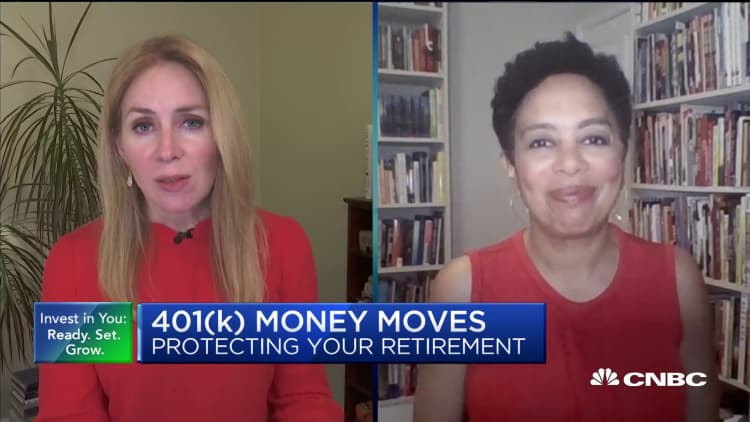
It's been a roller coaster for the stock market, and that's certainly had an impact on investors' 401(k) accounts and other employer-sponsored retirement savings plans.
Several major 401(k) providers, including Fidelity, Vanguard and T. Rowe Price, said the overwhelming majority of their 401(k) investors stayed the course and did not trade or change their asset allocation last month, as the S&P 500 lost 30% of its value from its record highs.
Yet new data from Alight Solutions 401(k) Index, which tracks investment activity of about 2 million 401(k) participants, tell another story.
Net trading activity within 401(k) accounts spiked to record-high levels in March, according to Alight. The total amount of money transfers, as a percentage of an account's starting balance, was the highest it's been since October 2008, in the middle of the Great Recession.
While most investors did not shun equity funds completely, nearly half of the 401(k) outflows were from target-date funds, and 29% were from large U.S. equity funds, according to Alight's data. T. Rowe Price also said it saw the greatest increase in activity last month in target-date funds of 401(k) participants who are in or near retirement.
Almost two-thirds of 401(k) money flowed into stable value funds, and almost a quarter into money market funds. Only 6% went into bond funds.
The stock market rallied a bit in early April, but there's been a pause in those slight gains as turbulence continues. Financial advisors warn investors against trying to time the markets.
"You can't control the economy or the markets," said certified financial planner Tim Maurer of Buckingham Strategic Wealth. "Focus on what you can control. Stay the course if you've got a well-conceived portfolio guided by a well-articulated financial plan driven by your deepest-held motivations in life. In fact, practice the art of buying low and selling high by rebalancing your portfolio."
Unfortunately, many 401(k) investors don't have a financial plan and may not have reviewed their retirement investments in years, prior to the March market slide.
T. Rowe Price said more than 98% of 401(k) participants maintained their current contribution rate last month, and changes to average salary deferral rates remained flat.
Also, under the $2 trillion coronavirus relief package, it is easier now for savers to take money out of their retirement plans. Under the CARES Act, beginning March 27, 2020, and up to 180 days after, you can borrow up to $100,000 from your 401(k). That's double the amount you can normally take. You can also take a hardship distribution of up to $100,000 from your 401(k) plan without the 10% early withdrawal penalty if you're under age 59½.
Some advisors worry that this could cause more retirement savers to tap their 401(k), putting their long-term financial security in greater jeopardy.
More from Invest in You:
The No. 1 personal finance lesson to take away from the coronavirus
The secret to financial success: Paying off debt
Who's eligible for COVID-19 stimulus checks? Your questions, answered
SIGN UP: Money 101 is an 8-week learning course to financial freedom, delivered weekly to your inbox.
CHECK OUT: How to get your coronavirus stimulus check ASAP, according to tax experts via Grow with Acorns+CNBC.
Disclosure: NBCUniversal and Comcast Ventures are investors in Acorns.






